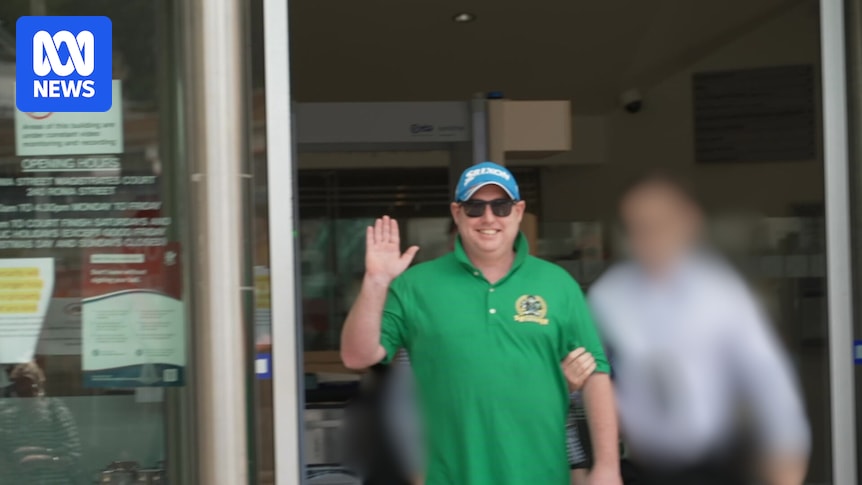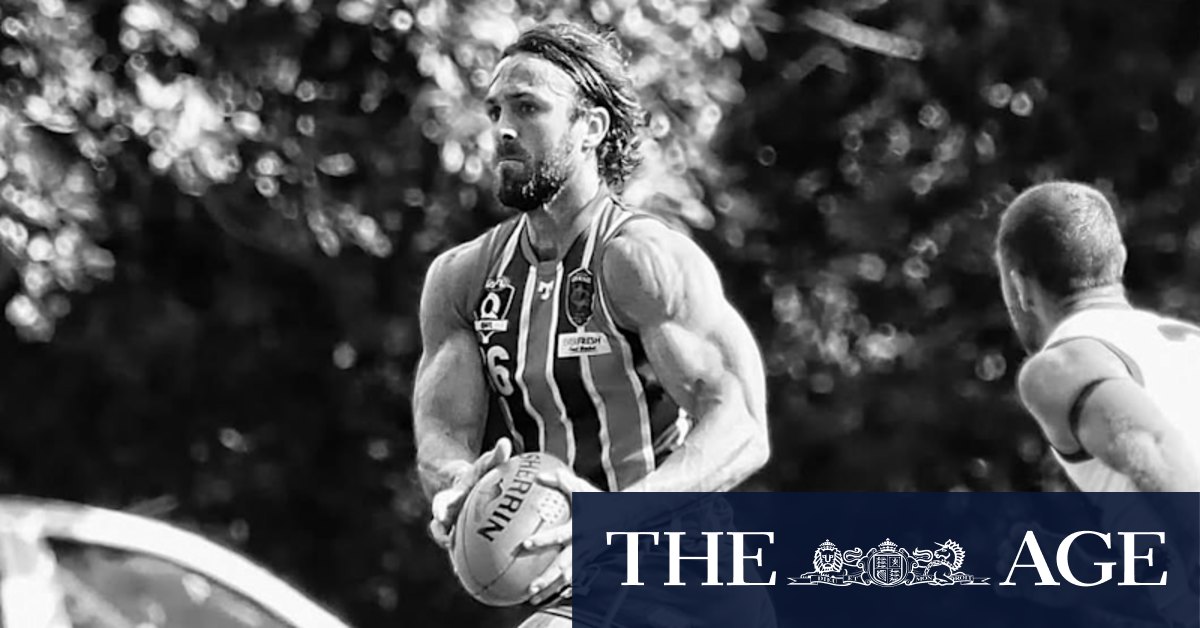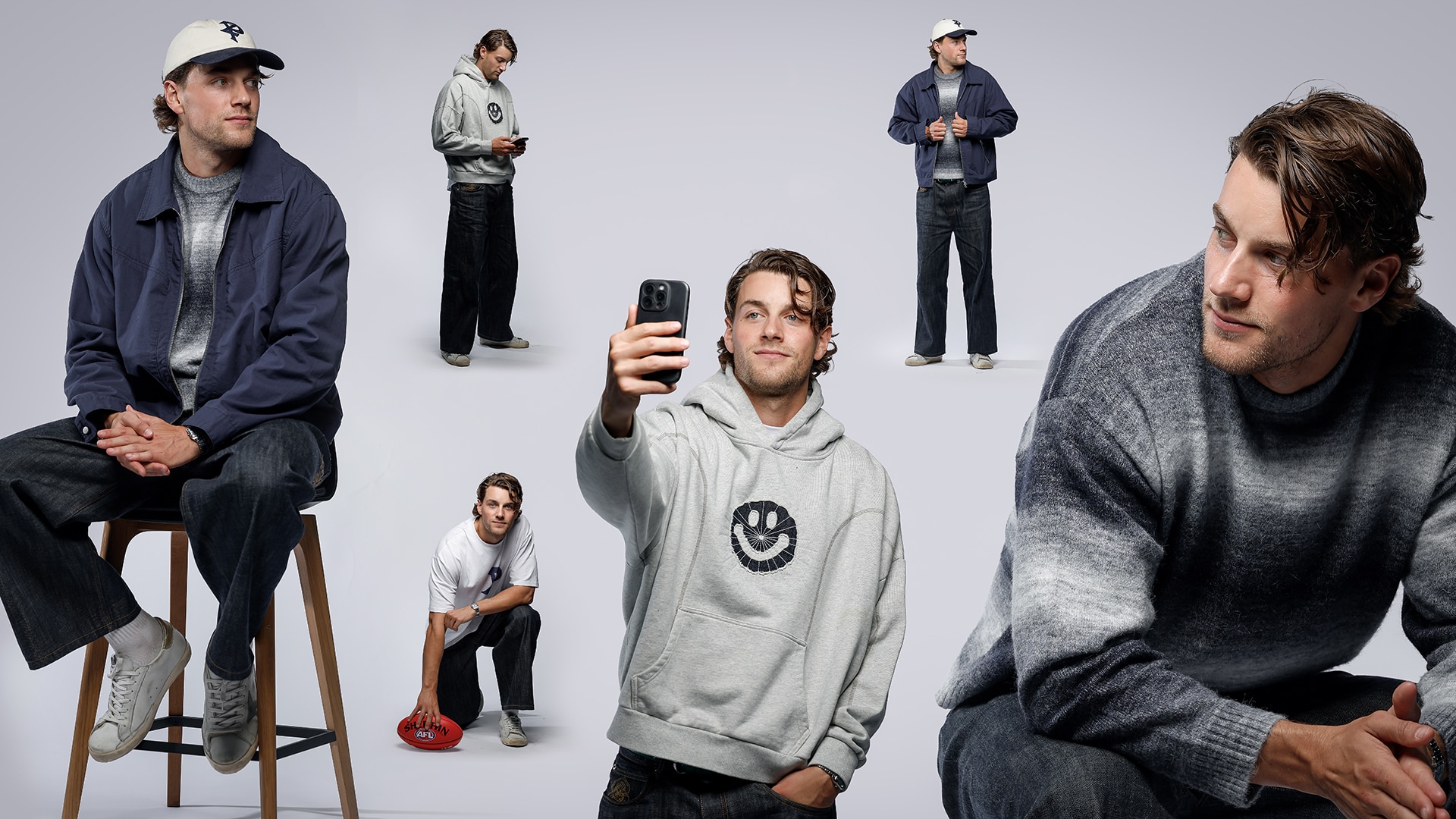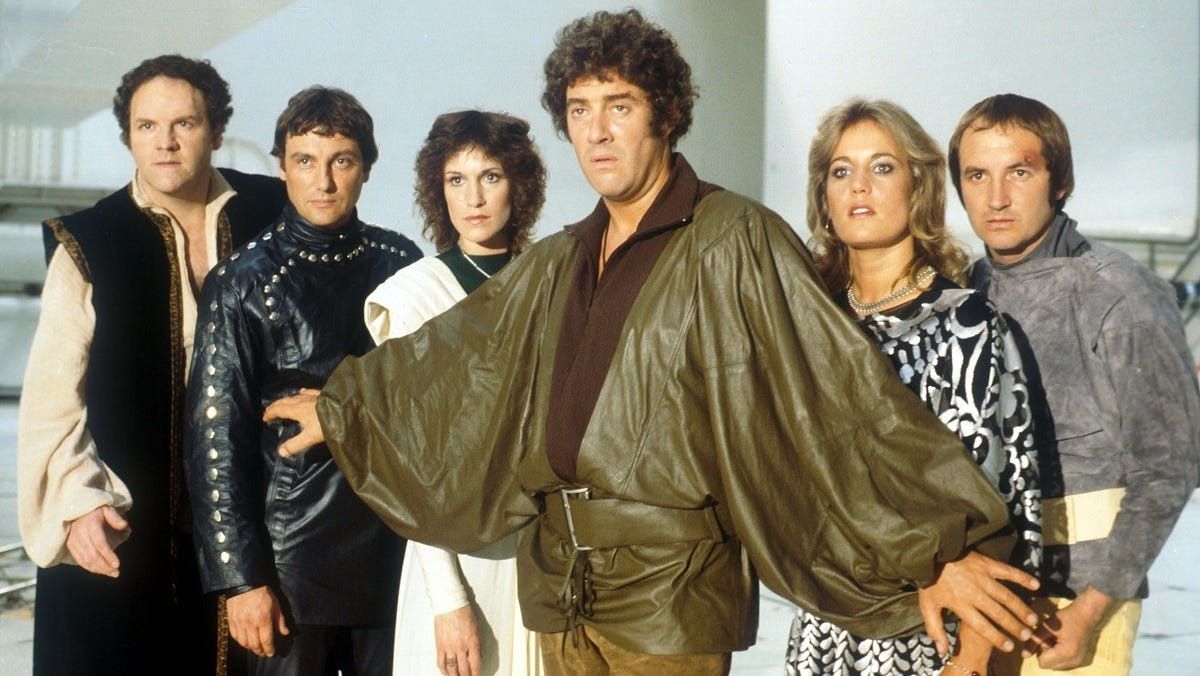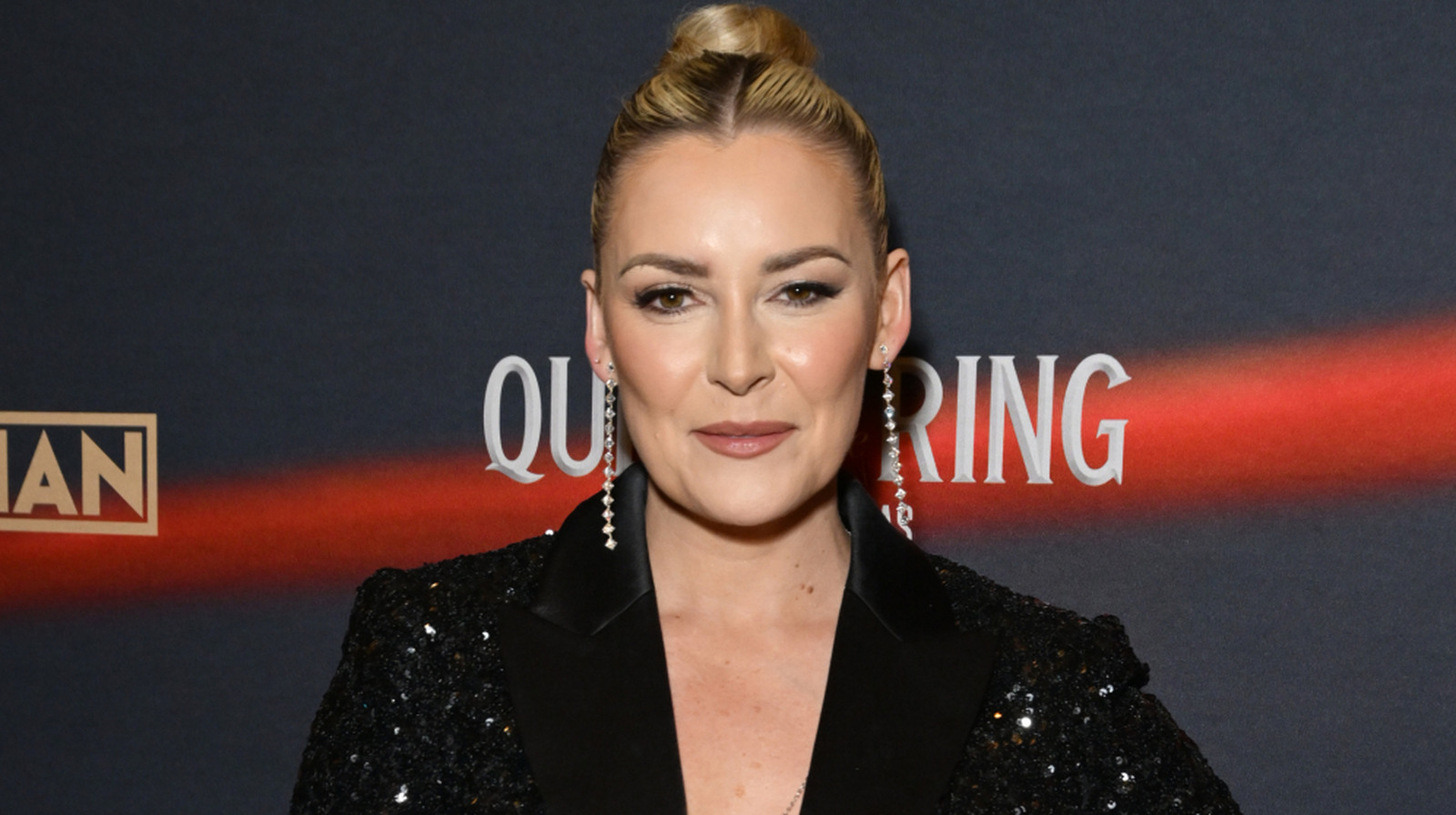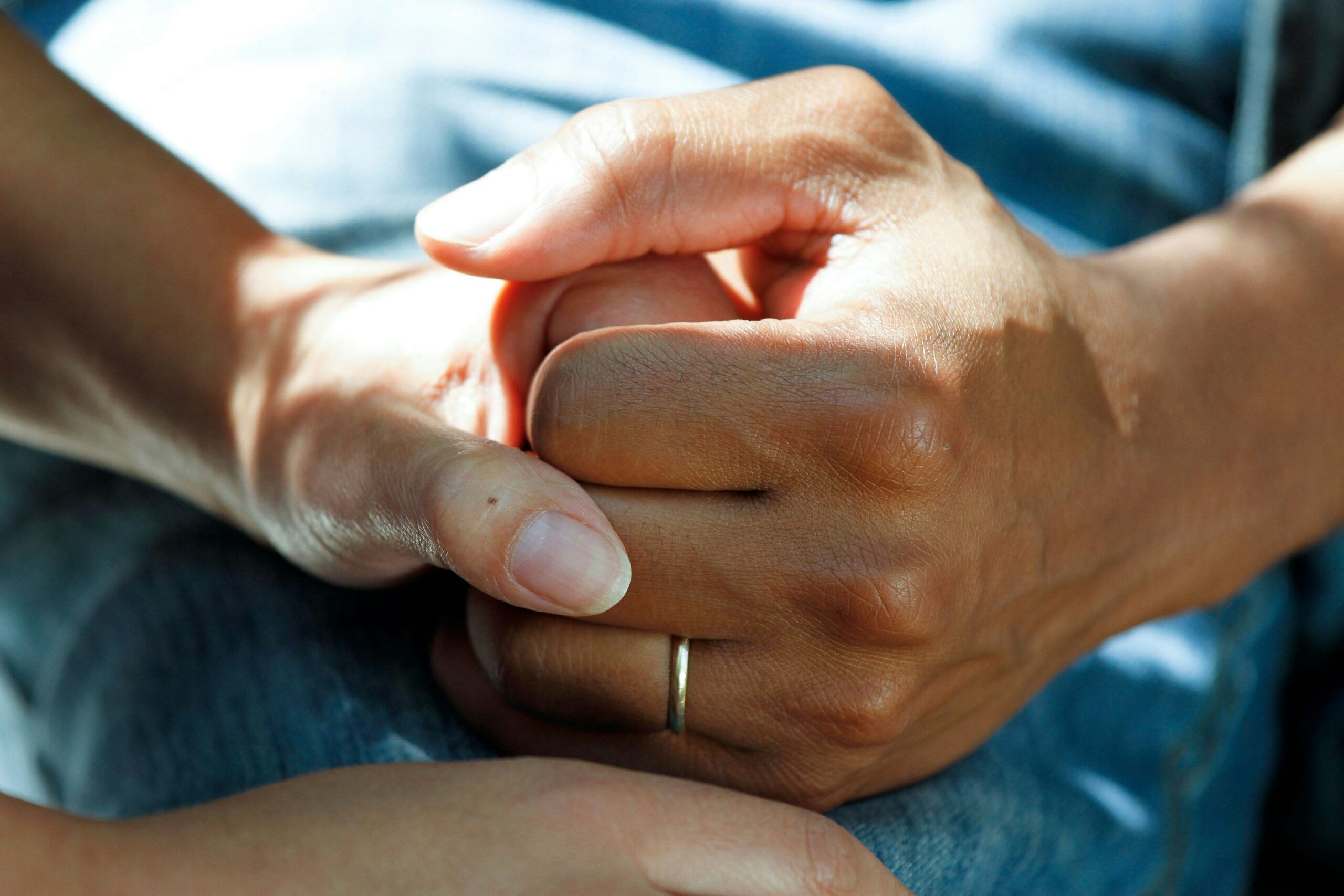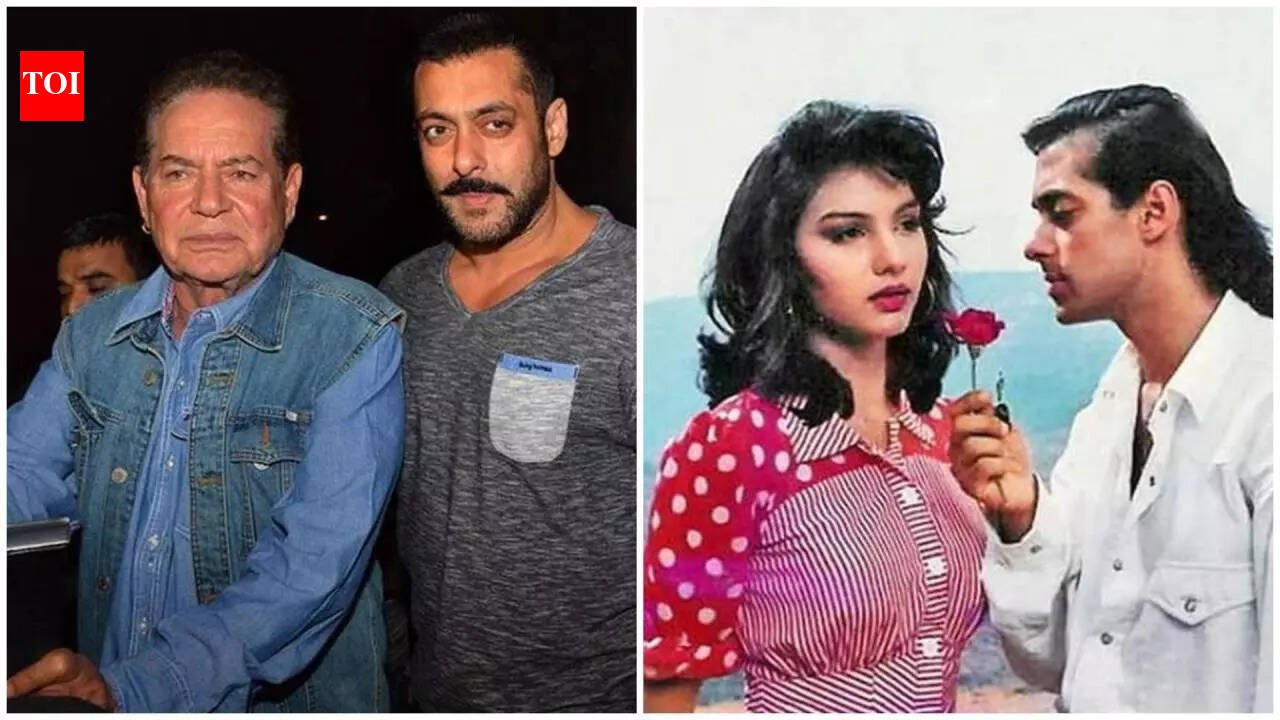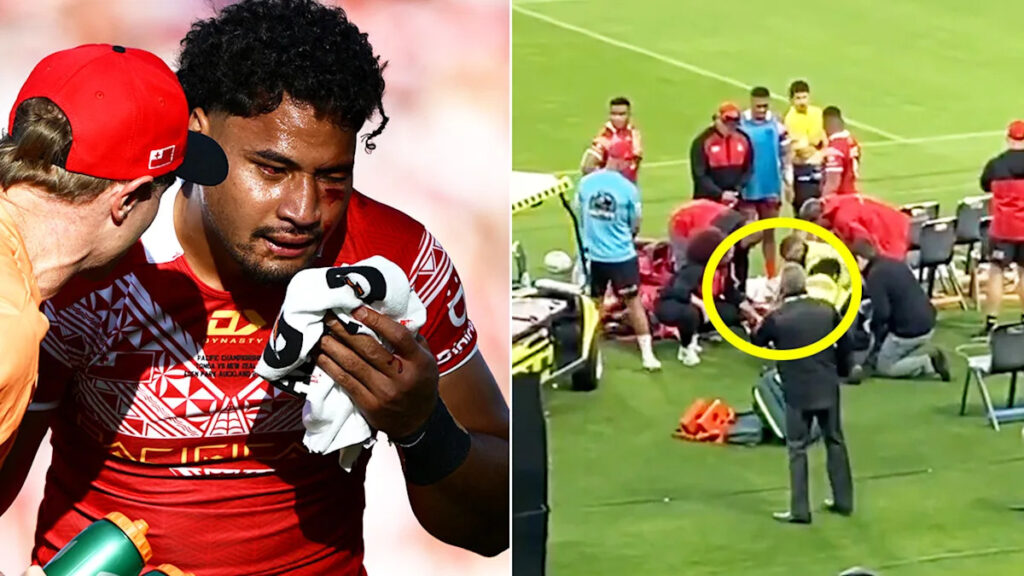
The National Rugby League (NRL) has announced a comprehensive investigation into the alarming incident involving Eli Katoa, the Tonga and Melbourne Storm star, who was hospitalized and underwent surgery following multiple head injuries. This decision comes after reports surfaced highlighting the quick actions of teammate Leka Halasima during the distressing event.
The incident unfolded during Tonga’s Pacific Championships match against New Zealand, where Katoa was rushed to the hospital after exhibiting “seizure activities” while on the bench. Earlier, Katoa had suffered a severe head knock during the team’s warm-up, which set the stage for the subsequent events.
Terrifying Scenes at Eden Park
During the pre-match warm-up, Katoa collided with teammate Lehi Hopoate, resulting in a concerning scene as he lay on the ground appearing distressed. Despite this, Katoa was cleared to play, with coach Kristian Woolf defending the protocols that allowed him to take the field.
Unfortunately, Katoa sustained two additional head knocks during the match. Although he passed the initial Head Injury Assessment (HIA) in the first half, he was forced to exit the game after the second incident. On the sidelines, Katoa’s condition worsened, necessitating the use of an oxygen mask.
“Eli Katoa was taken to hospital after suffering seizure activity on the bench during the second half of yesterday’s Pacific Championships match between Tonga and New Zealand,” Melbourne Storm stated. “Eli underwent surgery overnight and is in a stable condition being supported by his partner and mother.”
Heroic Actions of Leka Halasima
NRL reporter David Riccio provided insights into the dramatic scenes at Eden Park. Speaking on SEN Radio, Riccio described how Halasima’s swift response was pivotal in securing immediate medical attention for Katoa.
“I reckon, in my time covering rugby league, I haven’t seen this unfold before. And what unfolded…was on the sideline Eli Katoa was certainly showing signs of distress. And his health deteriorating,” Riccio recounted. “The first thing that sparked my interest was Leka Halasima was the one showing the most concern. Gesturing, pointing, asking support staff and teammates for assistance for Eli Katoa…you could see his body was starting to go limp. It was at that point there was genuine concern.”
Riccio noted that several of Katoa’s teammates and staff members assisted before he was transported to the hospital. The NRL’s investigation will focus on understanding how Katoa’s condition escalated to such a critical state.
NRL and Player Safety
The NRL has confirmed that its chief medical officer is closely monitoring Katoa’s condition and is in constant communication with the medical professionals involved. An NRL spokesperson emphasized that the player’s health is their primary concern.
“Our first priority is the health of Eliesa Katoa,” the spokesperson stated. “The NRL is currently reviewing the circumstances of Sunday’s events in line with usual practice.”
Katoa himself took to Instagram to express gratitude for the support he has received, sharing a photo from his hospital bed and thanking fans for their well wishes. “Appreciate everyone for checking in, sorry if I haven’t got back to any of you guys but I really appreciate all the love and messages. Ofa atu,” he wrote.
Reactions and Future Implications
The incident has sparked a broader conversation about player safety in rugby league. Tonga coach Kristian Woolf defended the medical decisions made during the match, stating that all procedures were followed correctly. “My job is not to question doctors,” Woolf commented. “They were both comfortable with that and comfortable with him coming on to the field.”
Rugby League Players’ Association chief operating officer Luke Ellis also weighed in, affirming that the association would conduct its own inquiries into the incident. “Ensuring a safe environment for players is the remit of the NRL,” Ellis said. “So along with our own enquiries, we will be trusting them to work through this and understand what occurred.”
As the NRL’s investigation unfolds, the rugby league community continues to rally around Katoa, highlighting the ongoing need for stringent safety measures to protect players from the long-term effects of head injuries.
